Graham Coxon on his Gilmour/Beck Franken-Strat and Magic Whip
Blur guitarist talks Hong Kong sweatshop, Oasis fans and more
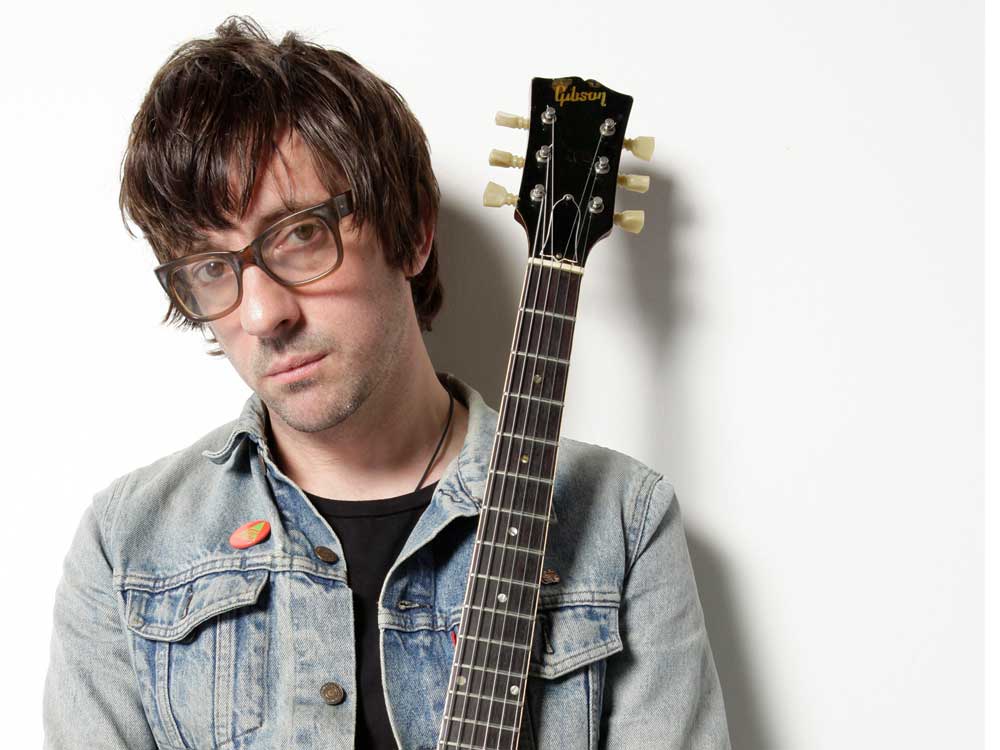
Unfinished business
There are two kinds of band reunion. The bad kind sees a gang of arthritic gargoyles mangling the hits on the stadium circuit, stuffing suitcases with bank notes, and avoiding the studio in tacit acknowledgement that they're creatively shot. But the best kind sees past glories segue into new chapters.
Take Blur. The Londoners' live return in 2008 scratched an itch, but the greater thrill was February's announcement that Graham Coxon (guitar), Damon Albarn (vocals), Alex James (bass) and Dave Rowntree (drums) had spent May 2013 holed up in a tiny Hong Kong studio – and were ready to drop eighth album, The Magic Whip.
12 years on
It's good to have Blur back. When the Britpop pack-leaders bowed out after 2003's Think Tank – an album on which an alcoholic Coxon barely played a note – there was the maddening sense of unfinished business.
12 years later, and this most cherished of national treasures has rediscovered what made them so great in the 90s with an album that walks the perfect tightrope between Albarn's populist melodies and Coxon's off-kilter riffs. We met the guitarist to hear about indie's most anticipated comeback of the year.
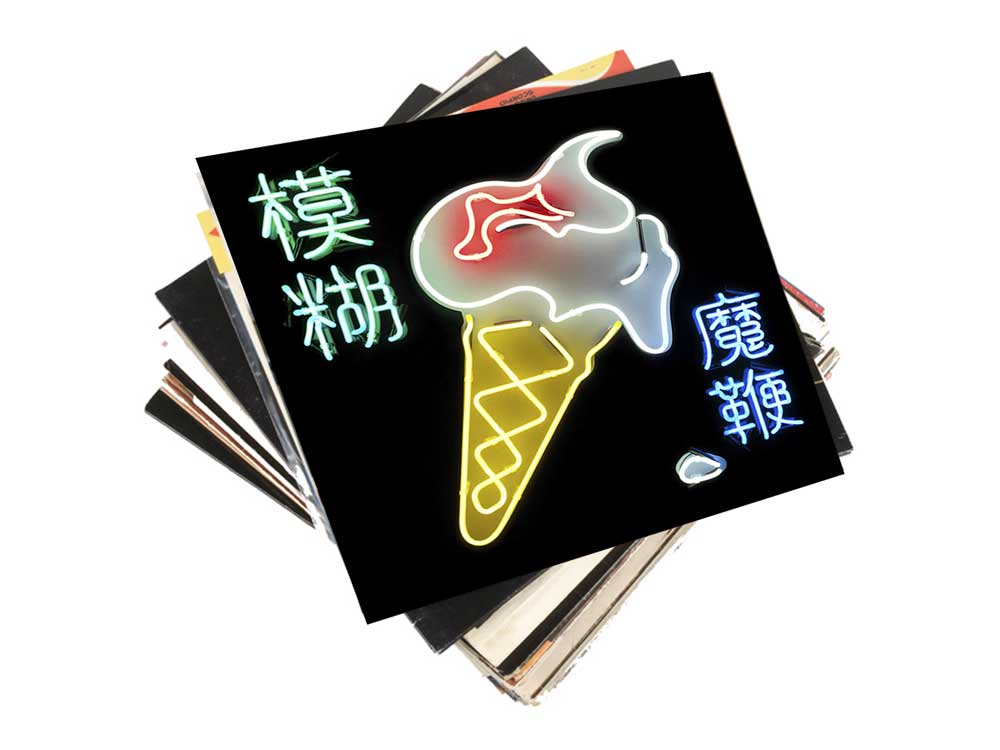
Dog days
What was it like to be in the studio with Blur after all these years?
"Well, we've been touring with each other for yonks, so it didn't really feel that different. Y'know, everyone had a bit of a jam in the soundchecks or whatever, so it was a bit like one of them – but over five days. It's still pretty good fun being in Blur.
"We're very much like dogs, really. We're like very different types of dogs"
"We're weird people, really, I suppose. There's a lot of laughter. There are flashes of anger and insults – and Damon is not shy in showing his response to [songs]. But it's all in really good humour, that's the thing. We're very much like dogs, really. We're like very different types of dogs."
What are your memories of those five days recording in Hong Kong?
"It was pretty hot and tiring. I remember us squashed up into a corner of the control room, with a big jug of green tea, and our heads down, listening out for direction. Just going round and round different chords, until we'd done everything we could with them – then moving on.
It was seven hours a day, solid. We were even eating our noodles while we were still playing. So it was fairly intense.
"We were travelling on the tube every day. Hong Kong is quite an anxiety-inducing city. It's got its own smells and weird sounds, and I suppose that's going to come out in the music at some point."
Do you think being crammed in like that inspired you more than being in some plush studio?
"Oh, definitely – and because it was just so casual, too. We were in a really strange place. And we were quite limited in the stuff we had there with us. I just had this Stratocaster that was built by my guitar tech, Steve Prior.
"Damon had some unusual keyboards lying around the place, Alex [James] was on this old Gibson bass, and we had a very rudimentary drum kit setup. I didn't even have my pedalboard, just the bits that we keep in reserve. So I just had my B-team of pedals."
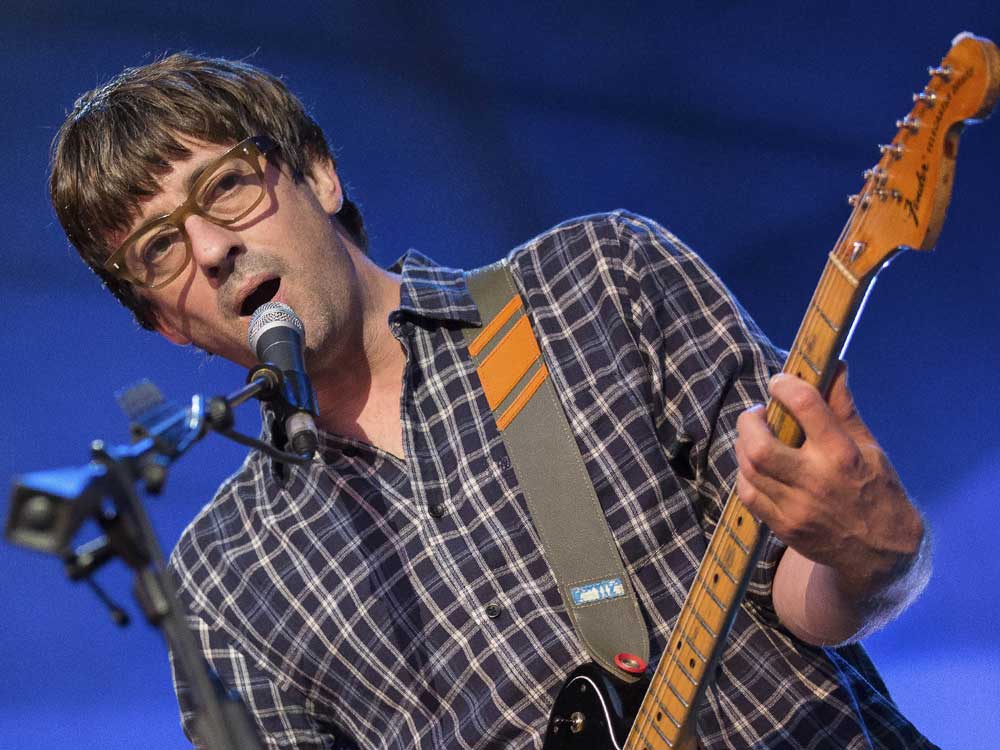
Mind reading
Do you have any favourite guitar moments?
"Well, my trickiest moment was the solo on Ghost Ship. Y'know, that fuzzy sound? Because it's such a happy song, but the solo is quite trilly, so it was a tricky one for me to get right.
"I really liked the great big chords in Thought I Was A Spaceman, and that almost My Bloody Valentine-esque moment towards the end where it feels like the track is really taking off, like a rocket, either going back to Earth or to another planet.
"You don't quite know what planet you're on in that one. But you do know that you take off at some point. I love that bit."
Do you find yourself returning to a certain mindset when you play guitar with Blur?
"No, I don't think so, actually. The only thing I can really put it down to is the telepathy. I like to interpret what I think Damon is trying to do, to get it through my hands, into the guitar and out of the amp.
"It's very intuitive, getting what I think he's trying to say down with a guitar"
"I'm quite good at that these days. I've been doing it a long time, I suppose. And it's very intuitive, getting what I think he's trying to say down with a guitar.
"It's like on My Terracotta Heart, that sort of bending quality to the guitar part. Before he'd really got all the lyrics together, I kind of knew where that song was going."
How did the songs come about?
"Just through jam sessions. But what was interesting – and I'd never done this before – is that I would come up with ways of changing the environment to some of the emerging melody lines. What I'd do is try to change the chord sequence, but not so that it didn't support the melody.
"So maybe I'd go to a relative minor or to another chord that would still hold that [melody] note – and it would have a dramatic change on how that music felt. That was a big learning curve for me, to do that, and have the chord sequence actually make sense and sound good, not just, y'know, random chords.
"That was a really good exercise for me. I think I learnt a lot doing it. The thing is, Damon gave me the space to do that, so I owe him quite a lot in that respect."
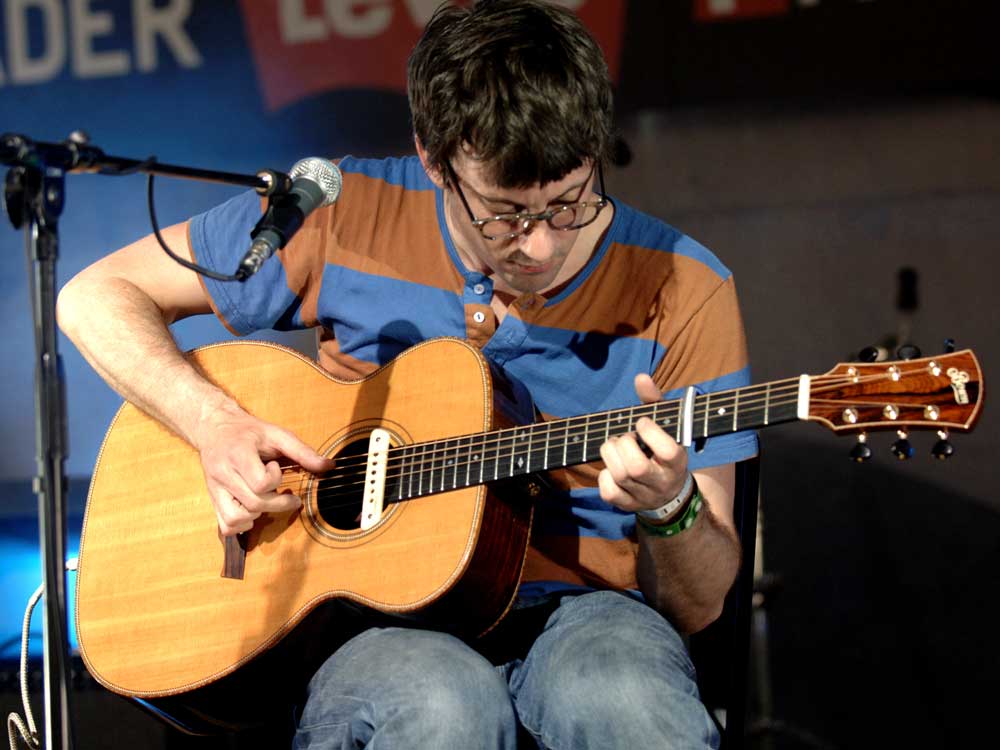
Pressure
I've heard it was you who convinced the band to revisit the Hong Kong material?
"Well, the material had been sitting around for ages, and we hadn't made much of a concerted effort to do anything with it. One day, I was bored and I had the idea that if I could take Stephen Street [producer] in with me and go through all this music we'd made, we could possibly make an album out of it.
"I talked to Damon and he said, 'Take it away and do what you want'. So we squirreled ourselves away for four weeks and sorted it out, added more guitar and bass, put down some synths and structured what we had.
"I didn't want to smother it in my own flavour, my Graham Coxon-ness"
"I got Stephen in because I absolutely trusted him, that he'd know what was good and what wasn't usable – and so we could cut out that overwhelming task of going through it ourselves. Because I don't think any of us would have had the patience. But I left a lot of gaps, y'know?
"I didn't want to smother it in my own flavour, my Graham Coxon-ness. I wanted it to inspire Damon enough to get some lyrics together and sing on it. It was a lot less stressful than I thought it was going to be."
Do you feel any pressure to prove to the world that you've still got it?
"Well, there's a little bit of pressure, I guess, in the fact that we couldn't release anything unless we really thought it was good. If Damon hadn't liked what me and Stephen had done, then it wouldn't have gone any further – but he got really fired up over it. For us, that's enough.
Whether it's relevant to anybody else [I don't know]. But I'm actually quite sure that it is. The way it sounds, and the lyrical subject matter… it sort of had quite a big effect on me emotionally, as someone who is 45, in this pretty bewildering world. I'm very proud of this album. For lots of reasons, I suppose."
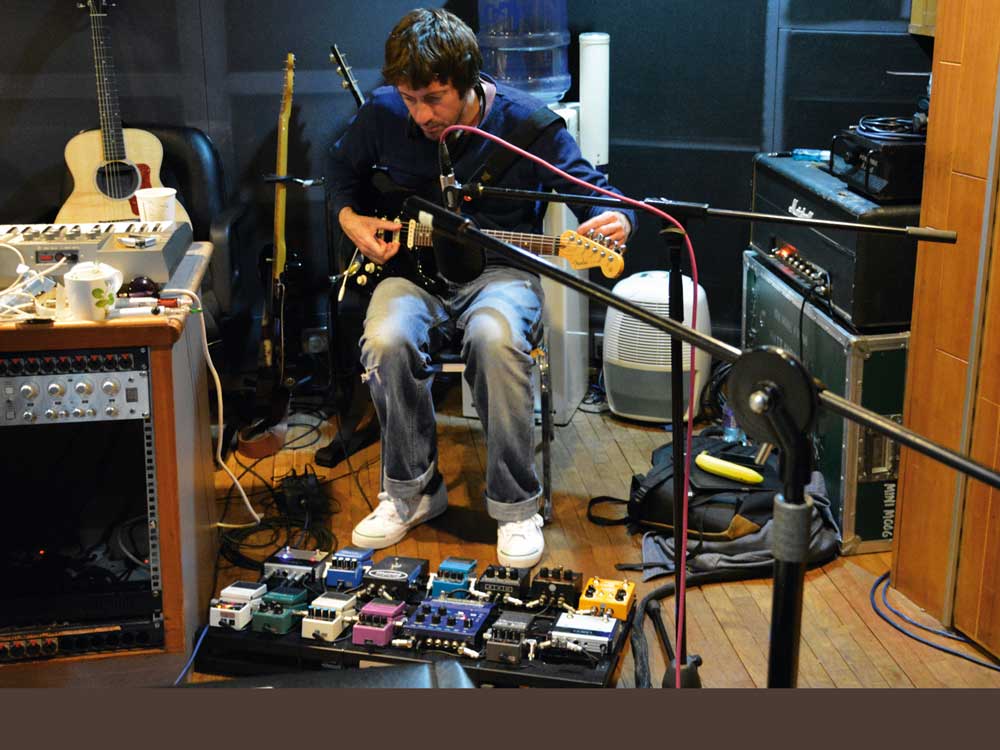
'Beck-Mour'
So, tell us about this Strat of yours?
"I kept seeing that Dave Gilmour Strat around, and I thought, 'Ah, I quite fancy something like that.' So I asked my tech and he built me a Strat out of bits and bobs. I was playing it on the tour and that was the one I was using in Hong Kong.
"I kept seeing that Dave Gilmour Strat around, and I thought, 'Ah, I quite fancy something like that'"
"It's got a whammy arm, and it brought a slightly unfamiliar tone to some of the stuff. It's got some pretty cool pickups: Steve selected them himself and dropped them into this black body.
"I don't want to get him into trouble, but I think the neck is one that Jeff Beck didn't want any more. So I call it a 'Beck-Mour', because it's half Dave Gilmour and half Jeff Beck. I think I might have had a Telecaster knocking about in the studio as well, but I was using the Strat a lot more."
You've never been a Strat man before…
"No. They're difficult. I find them extremely versatile, and I see why people use them, and I do like to have a tremolo arm knocking about, but I tend to reach for a Jazzmaster instead. I like Strats, but when it comes to live work, it's a funny one: they do have a super-brittle, take-your-head off treble on them. I had the pickup selector full in the up [neck] position, most of the time."
How about your backline?
"I was just using my normal 100-watt Marshall Plexi, but when I was recording with Stephen we were using a bit of AC30 in his live room, or just whatever we had lying around.
"Pedals?Oh God, I had the Line 6 guitar synth thing – the purple one [FM4] – and then a couple of RATs, the Wattson Fuzz [FY-2], one of the yellow Boss distortions, the Boss [RV-5] reverb and delay. I sometimes use the echo on the [Akai] Head Rush looper, too.
"They're pretty much what I have on my pedalboard. All the usuals. A vibrato, a compressor, a wah-wah, a phaser. All that sort of malarkey."
What are the most experimental guitar sounds on the album?
"Really, there's nothing better than putting on a few pedals and seeing what the guitar does on its own"
"I dunno about 'experimental'; I wanted the sounds to be quite otherworldly. But that's something that I've been obsessed with for years. Y'know, using delay and vibrato and then the Line 6 synth to do that 'yai-yai-yai!' kind of sound: I've come to use that a lot.
"But really, there's nothing better than putting on a few pedals and seeing what the guitar does on its own, without enforcing your will on it so much. I'm a big fan of seeing what happens with a lot of distortion, and what you do to your guitar other than just strumming, y'know? Tapping strings or whatever, with a lot of distortion: I think that's when you can make sounds that don't sound like guitar."
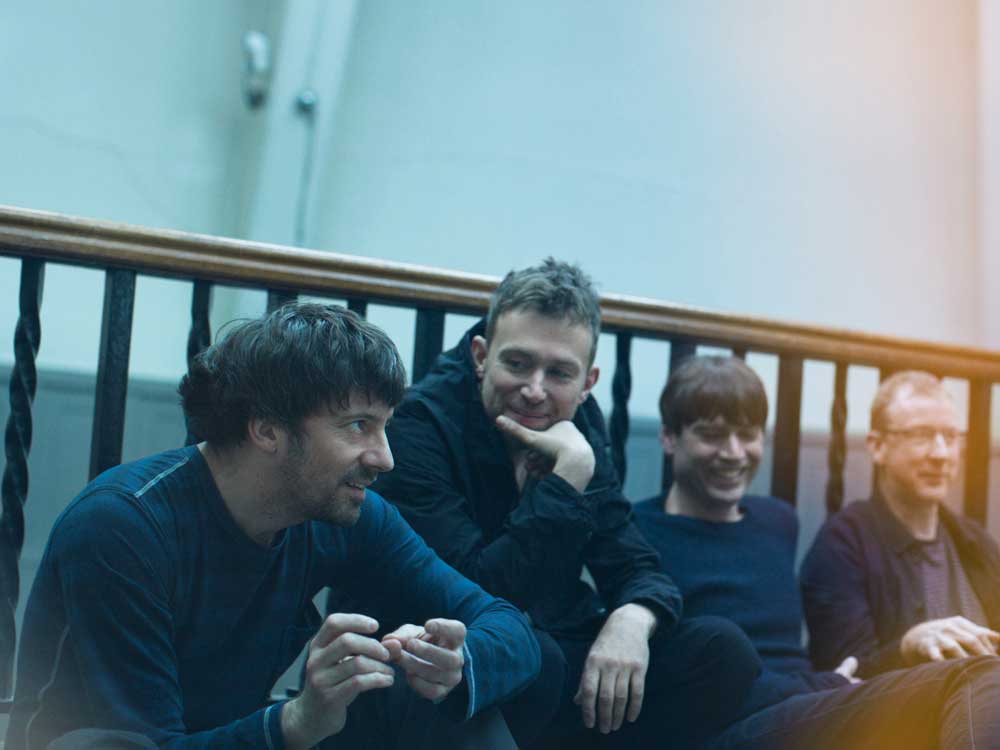
Ignorant gobshites
The verses of new single, Go Out, are particularly striking…
"Oh, that's just my delays and the Line 6 synth, with a bit of spring reverb and distortion. For the big distorted chords, that's the RAT, plus the Wattson Fuzz. I always used to listen to Robert Fripp, and I try and make my guitar sound like a Moog, with a note that goes on forever.
"I always used to listen to Robert Fripp, and I try and make my guitar sound like a Moog, with a note that goes on forever"
"So I'd have a couple of RAT pedals on at the same time – with one of them on full distortion and full volume – and it makes this note go on forever. Mirrorball is a Boss [RV-5] reverb on the Plate setting, with pretty much everything at 12 o'clock, apart from the knob on the left, which is at about 3 o'clock."
You toured with Noel Gallagher a few years back. Did you enjoy it?
"I loved it. Especially when I was killing a few of my detractors in the audience with some flippin' blazing guitar solos [laughs]."
Did you and Noel laugh about all that rivalry from back in the 90s?
"We never really had any. We were always perfectly nice to each other. Mostly, it was to do with Oasis and Blur fans. I was getting stick from Oasis fans – I never got stick from Oasis. And when I supported Noel, and I was playing my heart out, and I was getting called a wanker by some tosser in the audience…
"I didn't want to stand and rant at people, but I just thought, 'Well, y'know, it was Noel who invited me here. It's like, the man you've come here to see – he invited me to play.' It just seemed like ignorant gobshites, really – and I'm sure Noel would agree."
Blur's new album, The Magic Whip, is out on 27 April on Parlophone. Blur will play Isle of Wight on 13 June and Hyde Park on 20 June.

